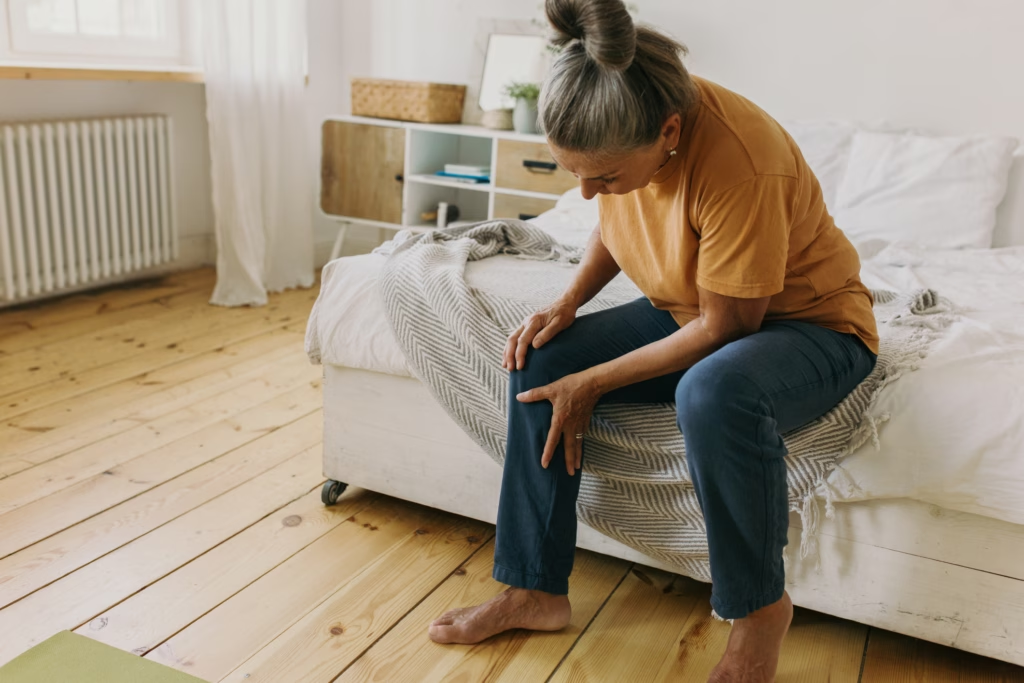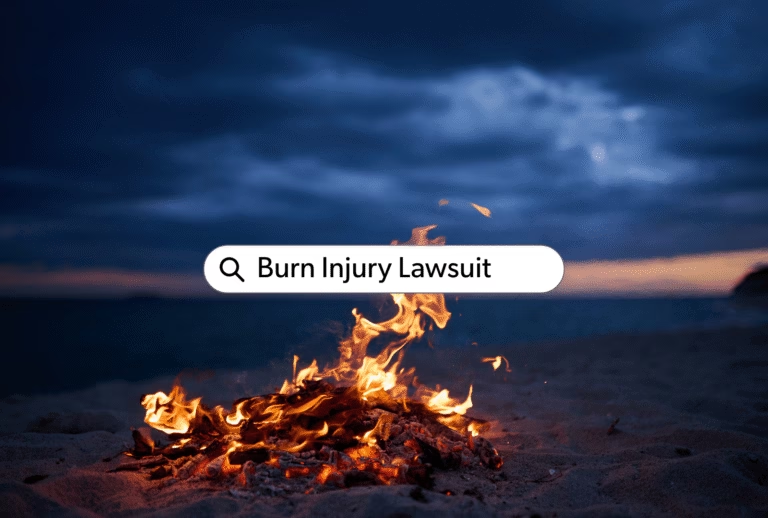Suffering an injury in your rental home can leave you with medical bills, lost income, and serious stress, but you do have rights as a tenant. Even if it’s not specified in your lease or rental agreement, landlords have a legal duty to keep their properties safe. When they fail to fix hazards like broken stairs, faulty wiring, or poor lighting, their rental property business may be responsible for the harm you suffer.
If you’re hurt because of your landlord’s negligence, you may be able to file a personal injury lawsuit to recover compensation for medical costs, pain and suffering, and other damages. Understanding when a landlord is legally responsible, how tenant protections work, and what steps to take after an accident can help you protect your health and strengthen your claim.
If you’ve been injured on someone else’s property, you may be owed compensation. Call (818) JUSTICE for a free consultation.
Understanding Your Rights as a Tenant After an Injury
Tenants are entitled to live in safe and habitable conditions, and landlords have a legal responsibility to provide that environment. When an accident happens on rental property, the injured tenant may be entitled to compensation. In many personal injury cases involving tenants, the central question is whether the landlord failed to uphold their duty of care to maintain the property.
What Landlord Liability Means for Tenants
Landlords are legally required to repair dangerous conditions, comply with local building and safety codes, and take reasonable steps to prevent foreseeable accidents. A landlord’s responsibility extends to shared spaces like stairwells, hallways, and parking areas, as well as within individual units when repairs fall under the landlord’s duty. If a landlord neglects their obligations and a tenant is harmed, the landlord may be held accountable for medical expenses, lost income, pain and suffering, and other damages tied to the injury. In some cases, courts may also impose additional penalties if the landlord’s negligence was especially reckless.
Common Situations Where Tenants Get Hurt
Injuries in rental properties often result from hazards that could have been avoided through timely maintenance or inspection. Slip-and-fall accidents in hallways, stairwells, or entryways are among the most common examples, especially when the flooring is damaged or wet without warning signs.
Tenants may also suffer injuries from broken handrails, faulty steps, inadequate lighting, or structural issues that compromise safety. Fires, electrical hazards, or exposure to unsafe building conditions can also create serious risks. When landlords fail to address dangers on their property despite being aware of them, it strengthens a tenant’s potential personal injury case.
When a Landlord May Not Be Responsible
Not every accident on a rental property automatically leads to landlord liability. If the tenant’s own negligence caused the injury, such as misusing appliances, ignoring posted safety rules, or creating unsafe conditions themselves, the landlord may not be responsible. Likewise, injuries caused by third parties, such as guests or visitors behaving recklessly, may fall outside the landlord’s control. The outcome of a personal injury claim depends heavily on whether the landlord could reasonably have prevented the harm. It’s important to carefully document the circumstances of the injury and understand the limits of a landlord’s legal duty.
Legal Standards That Protect Tenants
Tenants in California, and across the country, are protected by housing codes and safety laws designed to ensure safe living conditions. When landlords fail to meet their duties to provide safe and livable housing, tenants may have strong grounds for personal injury cases.
There are several standards designed to protect tenants:
Housing Codes and Safety Laws
Every city and state enforces housing codes that require landlords to keep rental properties safe and habitable. Housing laws in California cover essentials like structural integrity, safe stairways, adequate lighting, proper wiring, and working smoke detectors. A violation of local safety laws not only puts tenants at risk, but also creates clear evidence of negligence if an injury occurs.
In personal injury cases, showing that a landlord ignored or violated safety standards can strengthen the tenant’s claim for damages.
Landlord Notice and Response Requirements
The law also requires landlords to act quickly once they know about a hazard. If a tenant reports dangerous conditions, the landlord must respond in a reasonable time frame to fix it. If they fail or delay to repair what’s broken, the landlord could be liable if an accident happens.
For example, if a tenant warns a landlord about a loose stair step and nothing is done for weeks, the landlord could be held responsible if someone falls and suffers injuries. Courts often look at whether the landlord had notice of the danger and whether their response, or lack of response, was reasonable under the circumstances.
Steps Tenants Can Take After an Injury
Taking the right steps early on is crucial, not just for protecting health but also for preserving the strength of a future personal injury claim. Acting quickly can make the difference between a successful recovery of damages and a case that is difficult to prove.
Protecting Your Health and Your Claim
The first priority after any accident is seeking medical treatment. Even if injuries seem minor at first, seeing a doctor creates a medical record that directly links the injury to the unsafe condition in the rental property. Along with medical care, tenants should take photos of the hazard, such as broken stairs, poor lighting, or faulty wiring, and gather witness statements from neighbors or visitors who saw the accident or the dangerous condition.
Understanding Compensation Options
Tenants injured due to landlord negligence may be entitled to several types of compensation. Compensation can include coverage for medical bills, repayment of lost wages, and damages for pain and suffering caused by the injury. Courts may award compensation when it is clear that the landlord’s negligence directly led to the accident.
When to Contact a Personal Injury Lawyer
Any time you’ve been injured on someone else’s property, you should consider consulting with a personal injury attorney. Handling the process after an incident can be difficult and time-consuming. A skilled personal injury law firm can give you the best chance at fair compensation for emotional injuries as well as physical ones. A powerhouse law firm like Lawyers for Justice, P.C. is equipped to handle any personal injury case.
Injuries can be extremely costly. Between medical bills, lost wages, or other financial losses, your injury could leave you in a difficult spot. If you or someone you know has been injured as a result of their landlord’s negligence, call (818) JUSTICE for a free consultation.
Tenant Rights and Landlord Liability – FAQ
are landlords liable for tenant injuries?
Yes, you may be able to recover damages for emotional distress in addition to their physical injuries. If your landlord’s negligence caused you significant anxiety, stress, or trauma, the law recognizes trauma as a real harm that can be part of a personal injury claim. In cases where the landlord’s behavior was especially reckless or intentional, courts may even award punitive damages. Punitive damages are designed not just to compensate the tenant, but to punish the landlord and discourage similar misconduct in the future.
can i sue for my landlord’s negligence?
Yes, you can sue if your landlord’s negligence caused your injury. Landlords have a legal obligation to keep rental properties reasonably safe and to address hazards like broken stairs, faulty wiring, or water leaks that could lead to accidents. If they fail to meet that legal obligation and you’re hurt as a result, you may be able to file a personal injury claim. Through a lawsuit, you could pursue compensation for medical bills, lost income, and pain and suffering related to the unsafe conditions.
how to prove landlord negligence in personal injury cases
To prove landlord negligence in personal injury cases, you need to show that the landlord’s failure to maintain a safe property directly caused your injury. Evidence such as photos of unsafe conditions, medical records, and witness statements can all help support your case. If the unsafe condition should have been fixed but wasn’t, the landlord can be held liable for the damages you suffered, including medical bills, lost wages, and pain and suffering.



